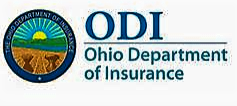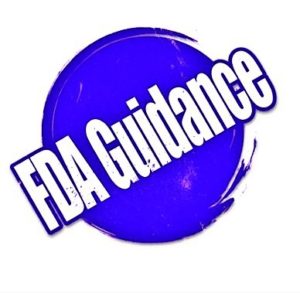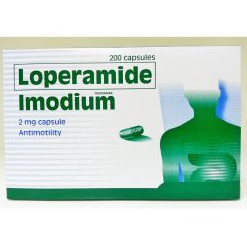- Ohio regulator orders insurers, benefit managers to give lowest drug price (reuters.com)
The Ohio Department of Insurance said...that pharmacy benefit managers and insurers would have to disclose the lowest price for a prescription drug for Ohio consumers, part of a move to prevent insured consumers potentially paying more than those without insurance...Two of the largest pharmacy benefit managers, Express Scripts Holding Co. and CVS Health Inc said their contracts include clauses by which members receive the lowest cost automatically...The agency said it would ban the practice in which some insurers and pharmacy benefit managers use contractual provisions to prevent pharmacists from discussing with consumers if low-cost options are available for prescriptions, effective immediately...It would also prohibit them from charging customers a higher amount for prescription drugs than what it would otherwise cost without insurance coverage
- FDA commissioner to health insurers: You’re doing it wrong (cnbc.com)
Insurance is designed, theoretically, to protect against the catastrophic: tornadoes, floods, hurricanes — or, where our health is concerned, cancer or another devastating disease...To make that financial protection affordable, many pay into the system: the healthy are supposed to subsidize the sick...But at a conference...organized by the health insurance industry, FDA Commissioner Scott Gottlieb delivered a startling message: You're doing it wrong..."Sick people aren't supposed to be subsidizing the healthy," Gottlieb told an audience at the National Health Policy Conference of AHIP, the health insurer industry group. "That's exactly the opposite of what most people thought they were buying when they bought into the notion of having insurance."...Gottlieb's remarks were focused on the health of the market for biosimilars — copycats of complex, biologic medicines — and his concerns that industry consolidation and what he called rigged payment schemes may be stifling their development.
- FDA to Launch New Pilot Program for Orphan Designation Requests (raps.org)
With more than 700 orphan designation requests last year, the Food and Drug Administration...announced a new pilot program to make the request process more efficient...The pilot will include a new form intended to make the submission process easier for sponsors to complete orphan designation requests, and to make the process more efficient for FDA...FDA also released an on-line tutorial to guide sponsors through the submission process and Gottlieb noted there is a new inter-center consult process to streamline and standardize communications...In addition to the pilot, FDA vowed to eliminate the orphan drug designation backlog, and is planning a public meeting to discuss the scientific and regulatory issues related to cancer treatments that target a tumor’s genetic features rather than its location in the body...“We’ll also consider the appropriate application of orphan incentives to this new paradigm of drug development, and how we apply designations to these indications,”...
- FDA Releases 2018 Compounding Policy Priorities Plan (iacprx.org)
The Food & Drug Administration has released a 2018 Compounding Policy Priorities Plan...FDA also issued a final guidance on mixing, diluting, or repackaging biological products, which describes the conditions under which the agency does not intend to take action when certain biological products are mixed, diluted, or repackaged in a manner not described in their approved labeling. According to FDA, "These policies are intended to minimize public health risks, while preserving access to these products for patients who have a medical need for them."
- Nevada State Board of Pharmacy – April Newsletter (bop.nv.gov)
Contraceptive Prescriptions
Prescription Readers
What Pharmacists Need to Know About AB 474
National Pharmacy Compliance News
- FDA Requires Labeling Update on Opioid-Containing Cough and Cold Medicines
- Latest NDTA Shows Opioids Pose Significant Impact to Public Health
- FDA Recognizes Eight European Drug Regulatory Authorities Capable of Conducting Inspections
- Incorrect Use of Insulin Pens at Home Can Cause Severe Hyperglycemia
- FDA Advises on Opioid Addiction Medications and Benzodiazepines
- Only About 3% of Pharmacies and Other Entities Voluntarily Maintain a Prescription Drug Disposal Bin, GAO Reports
- One in Five Drivers Uses a Prescription Drug That Can Impair Driving Despite Receiving Warnings
- PTCB CPhT Program Earns Accreditation From the American National Standards Institute
- CMS Unveils Patient Data Access Initiatives (healthleadersmedia.com)
The Federal government...unveiled two initiatives designed to improve patients' access and control over their personal electronic medical records, and also pledged to overhaul Meaningful Use and refocus on data interoperability and ease of use among providers...Under the MyHealthEData initiative, patients will have access to their complete electronic health record, which they can take from doctor to doctor, choose the provider they want, and give that provider secure access to their data, leading to greater competition and reducing costs, the Centers for Medicare & Medicaid Services said...Under a second initiative, Medicare has launched Blue Button 2.0, which allows traditional Medicare beneficiaries to access and share personal health data in a universal digital format, and connect claims data to the secure applications, providers, and services they trust...CMS Administrator Seema Verma unveiled the initiatives...at the annual conference of the Healthcare Information and Management Systems Society...CMS is also taking an aggressive stance against data blocking...it is the priority of this administration to ensure that every patient and their doctor can receive free and timely access to their electronic data,"...
- Nevada State Board of Pharmacy News January 2018 (bop.nv.gov)
- Reappointment of Jason Penrod
- A New Era for Compounding Inspections
- Senate Bill 59 Makes Changes in Reporting to the Nevada PMP
- PMP Data Submission Accuracy Data
National Pharmacy Compliance News First Quarter 2018
- FDA Draft Guidance Addresses Delayed Enforcement of DSCSA Requirements for Product Identifiers
- Amount of Prescribed Opioids Remains High, Reports CDC
- AMA Opioid Task Force Encourages Co-Prescribing Naloxone to At-Risk Patients
- Opioid Addiction Medications Should Not Be Withheld From Patients Taking Benzodiazepines or CNS Depressants
- New Study Shows Substantial Variation in the Availability of Pharmacies Across the Country
- Consent Decree Entered Against Outsourcing Facility Isomeric Pharmacy Solutions
- FDA Issues Warning on Alcohol Pads or Benzalkonium Chloride Antiseptic Towelettes Made by Foshan
- FDA issues draft guidance on compounding at outsourcing facilities (biopharmadive.com)
The FDA released a draft version of guidance covering compounding, called "Evaluation of Bulk Drug Substances Nominated for Use in Compounding Under Section 503B of the Federal Food, Drug, and Cosmetic Act Guidance for Industry," directed primarily at outsourcing facilities, addressing the use and qualification of bulk substances in compounding...The proposed rules are an extension of The Drug Quality and Security Act...which identified outsourcing facilities as its own category, separate from traditional compounders...Active pharmaceutical ingredients must be accompanied by a monograph from an appropriate governing party (if a monograph exists), must be made in a facility that has prior approval, and must come with a certificate of analysis (to prove they been characterized)...The agency proposes two specific ways to tell if a compounded drug at an outsourcing facility is safe: whether attributes of the approved drug may make it unsuitable to treat certain patients for particular conditions (including whether the compounded drug is intended to address that attribute), and second, if certain factors for each substance being proposed for use in a compounded drug product – specifically, "its physical and chemical characterization, possible or known safety issues, evidence or lack of thereof of effectiveness, and historical use" — would preclude its use by a third-party facility...The agency says the plan will "clarify and appropriately tailor the policies for traditional compounding pharmacies and the outsourcing facilities that may supply a broader market."...
- US FDA track and trace: Industry welcomes data standardisation (in-pharmatechnologist.com)
The US Food and Drug Administration released the Standardization of Data and Documentation Practices for Product Tracing – guidance last week, which elaborates on industry standards relating to the Drug Supply Chain Security Act...(which) aims to build an electronic system to trace prescription medicines in the US...The move to fully electronic traceability information is a positive step in terms of data integrity, availability and exchange in the supply chain...It is important firms within the pharmaceutical supply chain move in the same direction and embrace the advantages of technology and digitisation... Moving to a completely electronic system should only bring advantages to CMOs and the wider industry, improving data integrity and security and reducing the time and resource needed to produce and exchange traceability...
- FDA asks drugmakers to limit amount of opioid drug in packaging (reuters.com)
...Food and Drug Administration is asking manufacturers of a common opioid medicine to change the way the drug is packaged, as part of efforts to deter its abuse amid an opioid epidemic...The FDA said...it sent letters to manufacturers of diarrhea medicine loperamide, asking them to ensure that packages contain only a limited amount of the drug that is appropriate for use for short-term diarrhea...The agency wants to eliminate the large bottles in which loperamide is often sold because the abuse of the drug requires such large quantities.










